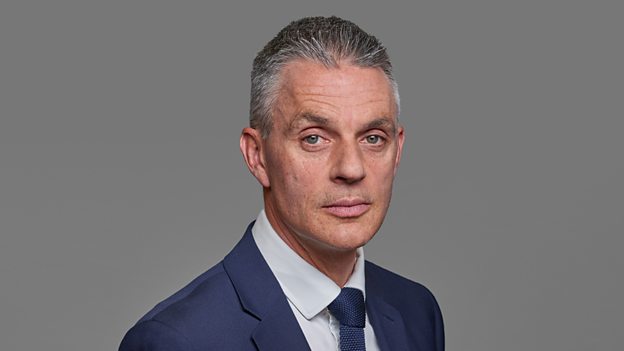BBC: “Annual Plan delivers greater value”
March 30, 2022
The BBC says its new Annual Plan reveals creative highlights for the year ahead, and explains how the broadcaster will continue reforming to deliver maximum value to all audiences.
The plan is published at a time when record numbers globally are tuning into the BBC for impartial news coverage of the war in Ukraine. During the first week of the conflict an estimated 280 million people from the UK and around the world came to the BBC’s online news output.
At home, the BBC prepares to celebrate its 100th anniversary, the broadcaster remains the number one media brand, and 86 per cent of the UK public say the BBC has been important to the nation during this time.
The report sets out five strategic priorities which the BBC’s plans for 2022/23 are based upon:
- Strengthening impartiality
- Creating distinctive, high-impact content
- Transforming digital offerings and capability
- Accelerating commercial and global growth
- Delivering reform of the BBC, getting closer to audiences across the UK, and managing the impact of the first year of the new licence fee settlement.
Richard Sharp, BBC Chairman, said: “This Annual Plan shows the need for truthful, independent news and uniquely British content, is needed more than ever. Our plan highlights the challenges and opportunities in the media market. We will continue driving changes to our public service and commercial operations to fulfil our duty.”
Tim Davie, BBC Director-General, added: “The BBC is performing an indispensable role delivering impartial news around the world, with 456 million people using our services globally every week and growing. This Annual Plan shows significant progress has been made to reform the BBC, but we will continue to transform the organisation to provide value for all audiences in the digital age.”

A summary of the BBC’s plans for 2022/23 detailed in the report include:
- Improving personalisation of BBC iPlayer and Sounds and the rollout of a new BBC News app – the current app was first released in 2010.
- The centenary year will be packed with creative highlights including Conversations with Friends the TV adaptation of Sally Rooney’s debut novel; Blue Lights, a drama from the writers of the Salisbury Poisonings; The English from Hugo Blick; and the return of Happy Valley, Ghosts and Alma’s Not Normal.
- New factual series like Frozen Planet II, Inside the Autistic Mind and Five Days on Mars with Brian Cox will provide audiences with a new perspective on the world and beyond.
- On BBC Three younger audiences will see more stories that reflect their communities, such as extreme tractor racing competitions on The Fast and Farmer-ish, a celebration of entrepreneurialism on Angels of the North and The Drop, and a look at the lives of young bricklayers in England in Brickies.
- In audio, distinctive live events return to cities and towns across the UK. Radio 1’s Big Weekend will be hosting over 80,000 young fans in Coventry’s War Memorial Park, and in Cardiff, Little Simz, Idles and Manic Street Preachers are part of the 6 Music Festival line up.
- In Children’s, the BBC will launch a new series called Phoenix Rise, set in a fictional West Midlands secondary school filmed in the region, alongside other key titles such as Jamie Johnson (Wales), The Dumping Ground (NE England); JoJo and Gran Gran (SW England).
- The Queen’s Platinum Jubilee is a momentous milestone which will be marked across the BBC.
- Sporting highlights will include the UEFA women’s European Football Championship, Commonwealth Games and Rugby League World Cup, alongside live coverage of the FIFA men’s Football World Cup from Qatar.
- In News, the BBC saysit will continue to find new ways to inform UK and international audiences about the ongoing conflict, such as the recently launched podcast Ukrainecast. Panorama will continue to deliver impactful investigations, with additional investment.
- By September, all planned BBC News teams will be transferred to their new UK bases, including Newsbeat and Asian Network news to Birmingham, and News story teams to Salford, Leeds, Glasgow and Cardiff.
- The BBC will introduce a new target for 25 per cent of staff to come from low socio-economic backgrounds by 2027, to ensure our workforce is more representative of the audiences we serve.
- The BBC expect to meets its goal of reaching 500 million people outside the UK every week, and will accelerate the digital transformation of the World Service.
- BBC Studios will continue to develop and grow direct-to-consumer digital subscription services, with new non-executive director Damon Buffini taking on the role of chairing the commercial arm.
In January this year it was announced that the licence fee will be frozen for two years from 2022/23, then rise in line with inflation for the following four years.
Through careful financial management, the BBC says it goes into the coming year in a strong financial position to help us through the first year of the settlement. However, the BBC will need to find £285 million in annual savings by 2027/28 as well as respond to ever-increasing super-inflation in the media market.
The BBC will set out its longer-term strategy – which will outline how the it can continue to be a successful organisation for the country for the rest of the Charter – and how it plans to manage these resource pressures in May.
